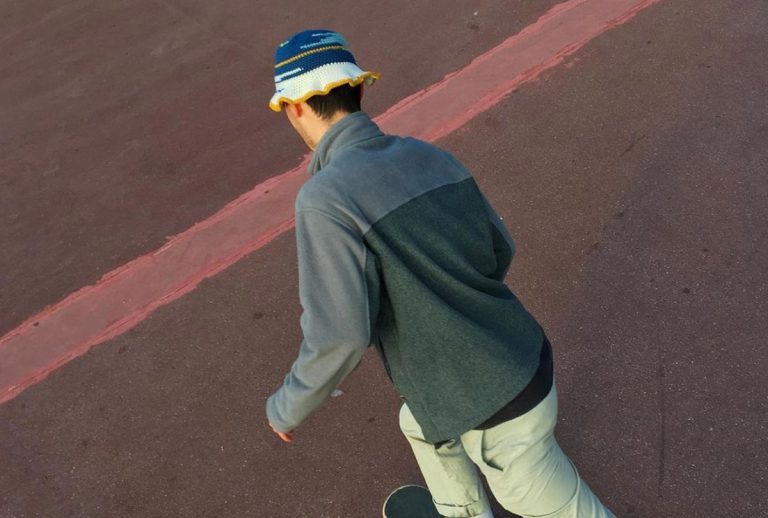Knitting and crocheting are no longer just hobbies: 3 gen Z creatives explain why
In every crisis, there are opportunities looming around and even amid this global pandemic, the same can be said. What was once renowned and beloved by baby boomers has now trickled down generations and become a therapeutic hobby or a grand business opportunity for millennials and gen Zers. When did crocheting and knitting become more than just a craft?
The summer of 2020 was memorable for many reasons, but for me, knitting in the sun with a gin and tonic by my side takes the trump. From the kaleidoscopic JW Anderson cardigan that started a TikTok trend to independent brands such as @Lulukaalund2 and Hope Macaulay, yarn couture was ‘in’ and crotchet fashion began to dominate every viral runway, as well as pavement. The rest of us are still just joining the craze, but three fashion-conscious creatives in particular adamantly strayed away from the pandemic spectacles and sought relief in their cherished two hooks.
The first of which was from Denmark, after the country went into lockdown on the 11 March, PASTA JESUS was born. The mid-20-year-old behind the independent account spoke to Screen Shot and said, “We had about two months of complete silence, so during the dark and quiet time I tried my hand at making my own colourful pieces.” In a bid to keep her creative and personal life separate, she has requested to remain anonymous.
The first of which was from Denmark, after the country went into lockdown on the 11 March, PASTA JESUS was born. The mid-20-year-old behind the independent account spoke to Screen Shot and said, “We had about two months of complete silence, so during the dark and quiet time I tried my hand at making my own colourful pieces.” In a bid to keep her creative and personal life separate, she has requested to remain anonymous.
Around the same time, Megan Turner set up her craft-focused Instagram account to showcase the many socks she was knitting for friends and family, and before she knew it requests came swarming in. She now runs her business from the comfort of her home in Brighton. “My mum taught me to knit when I was seven, I stopped for a couple of years but picked it up last year and haven’t stopped since,” she tells Screen Shot.
In recent years, retailers and consumers are encouraged to shop with conscious awareness—in an attempt to steer clear of fast fashion and landfill excess. Since then, the upheaval of sustainable purchases remains prevalent; apps like Depop are the epitome.
“I’m not interested in creating trend-based pieces or working for seasons,” explains innovator Beth, the face behind @B.clax, “I’m interested in creating high-quality unique knitwear that will last forever.” Four years ago, she took a foundation course and since then, the passion remained prominent. “A piece can take me anytime from a day to a month depending on the intricacy and detail. Nonetheless, they’re guaranteed to be long-lasting, as I only use the best quality yarn,” she said.
Durability and endurance are terminologies every high fashion brand promises when justifying the price tag. However, after the disastrous events of the Rana Plaza factory seven years ago, which demonstrated the façade behind the fashion industry, the inhumane conditions of workers should continue being the key driver for why we must all do better. The pandemic has given like-minded creatives time to bloom; and with climate change still in full swing, people have started creating more and shopping less.
“A vest takes me three weeks to make, a hat a little less, and a sweater a little more. Merino wool is my favourite to work with as the fabric has antibacterial properties, which helps it destroy odours while remaining breathable. It’s perfect for Denmark’s weather which is cold 80 per cent of the time,” said PASTA JESUS’ co-founder.
For Megan down in Brighton, just one item in her collection takes her eight hours to make, “The bags are the shortest and the Daisy jumper takes a solid three days.” Still, she believes it’s worth the time, “In March, I decided to actively boycott fast fashion and have noticed a real shift in like-minded customers.”
According to an advert I stumbled across on Instagram, “crocheting is not just a hobby, it’s a way of life,” and for some, it really is. Crochet therapy is a thing! It is not only said to work wonders for those with depression and anxiety, but it can also help with insomnia, reduce the risk of Alzheimer’s by 30 to 50 per cent, build one’s self-esteem, act as a form of group therapy and, most importantly, put you in control—especially in hopeless moments like lockdowns and isolation.





